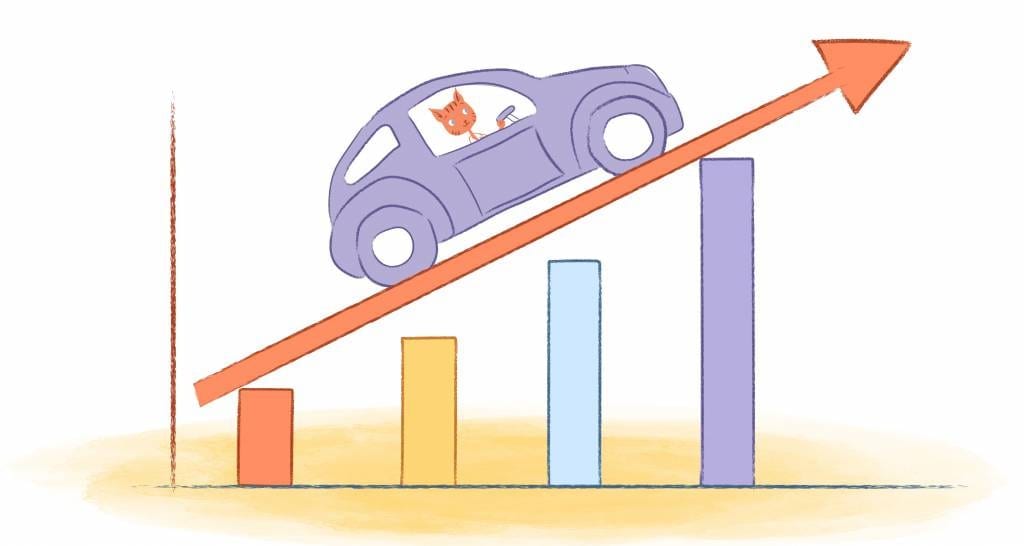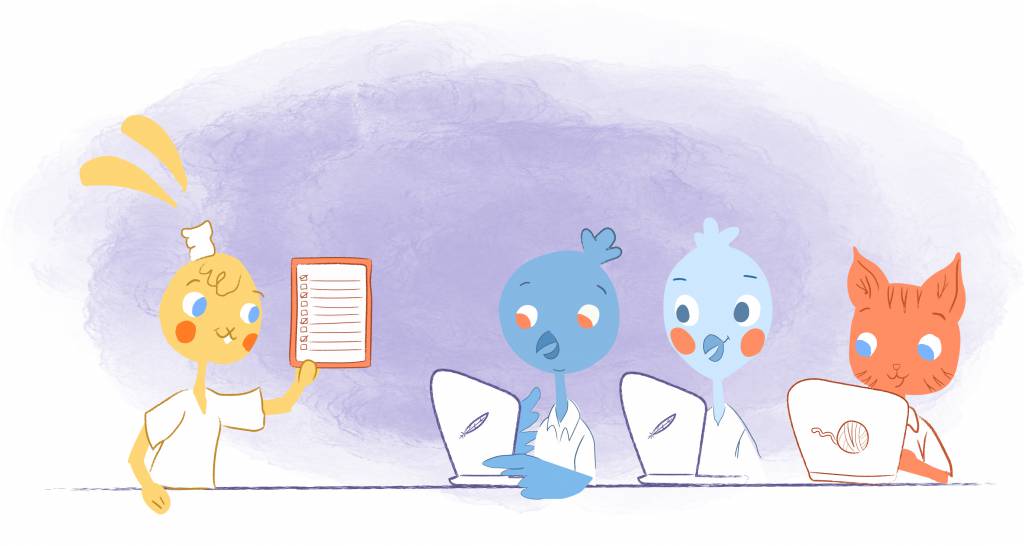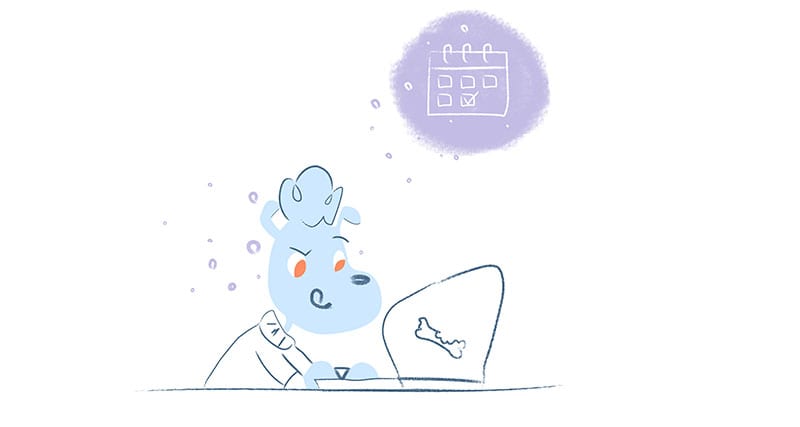

When it comes to an amazing time management strategy, everyone has their own preferences. Some people find that waking-up earlier gets the job done. Others live by their calendars or bullet journals. And some people rely on unusual techniques.
What is your personal — unusual — time management technique?
Take for example, Julia Larson-Green, Microsoft’s former Chief Experience Officer and current CXO of Qualtrics, who takes the “lazy” approach. “Being lazy makes me more efficient, because I try to find ways that I can do the best work in the most minimal amount of time,” explained Larson-Green. “I also know that I need pressure to perform, and procrastination is one of the levers for creating that pressure.”
How will you decide to manage your time with efficiency?
Regardless of how you decide to manage your time more effectively — one issue may need to be corrected. Hopefully, one piece of information will come to the forefront of your thinking. Time management isn’t just necessary if you want to be productive, it’s also crucial to a happy life.
Why crucial to a happy life?
That’s because effectively managing your time can reduce stress, help you avoid mistakes, accomplish more in less time, and improves decisions. As a result, you become more fulfilled and successful.
Only you can reap the benefits of time management for yourself.
You can only reap the benefits of time management if you have a strategy — and not just a series of random hacks. After all, having a strategy establishes and guides you in achieving in your goals. In this case, your goal is managing your time more effectively.
So, what’s the secret strategy to mastering your time? It’s to systematically focus on importance and suppress urgency.
The secret to mastering your time is to systematically focus on importance and suppress urgency.
This thought comes from Oliver Emberton, the founder of Silktide.
“Humans are pre-wired to focus on things which demand an immediate response, like alerts on their phones — and to postpone things which are most important — like going to the gym,” explains Emberton. “You need to reverse that, which goes against your brain and most of human society. “
Urgency can stop productivity.
There’s a lot of truth to that. Urgency often stops productivity dead in its tracks. In fact, research has found that we do indeed get distracted by urgent tasks over the important.
U.S. President Dwight D. Eisenhower.
To be fair, Emberton wasn’t the first person to come to this conclusion. This concept can actually be traced back to Dwight D. Eisenhower who said during a 1954 speech to the Second Assembly of the World Council of Churches, “I have two kinds of problems, the urgent and the important. The urgent are not important, and the important are never urgent.”
The “Eisenhower Matrix.”
In 1990 Stephen Covey introduced the “Eisenhower Matrix” in his his influential book the 7 Habits of Highly Effective People. And since then it’s been considered one of the most effective time management strategies.
The “Eisenhower Matrix,” which is also known as the Urgent-Important Matrix, simply encourages people to prioritize tasks tasks by urgency and importance by listing them into 4 quadrants:
- Urgent and immediate tasks that you need to do ASAP.
- Important, but not urgent, tasks that can scheduled for later.
- Urgent, but not important, tasks that can delegated.
- Tasks that are neither urgent or important. These can be deleted.
If you’re lost, here’s a video that further explains this concept.


How you can concentrate on important tasks and suppress urgent tasks.
Even though this is an effective time management strategy, it’s not always as easy to implement. Remember, urgency tasks always trump important tasks. Thankfully, you can use these 10 tactics to start concentrating on your most important tasks instead of those pesky urgent tasks.
Write down your top priorities…and keep them in view.
The first place to start is by reminding yourself daily what’s really important. These should be the goals that you’ve established such as discovering your passion, spending more time with your family, or constantly improving yourself personally and professionally.
Don’t go overboard. Think about the four or five most important goals in your life and go from there.
Since prioritization is easier said than done, here’s how you can prioritize for better time management:
- Write a task list and post it in locations where it can easily viewed, like your workspace or bathroom mirror.
- Assign numbers to each task starting with your most pressing duty.
- Use a calendar app so that you can schedule these tasks into your daily routine.
- Stop focusing on other people’s priorities.
- Evaluate your days to see what you did and didn’t accomplish. This can help you determine what went right and what went wrong.
Know where you’re wasting time.
It happens to the best of us. We’re “in the zone” and then we get a phone call, text, email, or social media notification. Next thing you know you’re spending an hour cleaning out your inbox or scrolling through your news feeds.
You may not know how much time these distractions are really eating into your day until you track your time. The good news is that there are plenty of apps like RescueTime, Toggl, Instant, and Webtime Tracker that can determine how much time you waste on social media, email, distracting websites, and even your smartphone.
Identify and eliminate distractions.
The apps I listed don’t just identify common distractions. They can even block them for you. For example, they can block certain websites from being accessed at specific intervals. This way you can’t visit them while working on an important task.
However, you should also think about the two or three of most common distractions that prevent you from getting stuff done. This is different for all of us, but here a couple of suggestions to begin with.
- Either turn-off your smartphone, put it on airplane mode, or leave it in another room.
- If you have a landline, consider sending calls to voicemail while working.
- Close your office door. If other’s still barge in, place a “do not disturb” sign on your door.
- To block out background noise listen to music or put-on noise cancelling headphones.
- Relocate to a coffee shop or co-working space if you’re constantly distracted in your home — Netflix and household chores are always trying to grab your attention when working from home.
Don’t be available 24/7.
I know that you don’t want to disappoint anyone, but as Warren Buffet has said, “You can’t let other people set your agenda in life.”
Have a bigger, “yes.”
Stephen Covey once said: “You have to decide what your highest priorities are and have the courage pleasantly, smilingly, and non-apologetically — to say, ‘no’ to other things. And the way to do that is by having a bigger ‘yes’ burning inside.”
In other words, you can’t immediately stop what you’re doing to help a colleague or answer a question from a client. You also can’t accept every meeting and social invitation. And, most importantly, you can’t be on-call 24/7 to respond to calls, texts, or emails.
Preston Ni M.S.B.A. suggests in Psychology Today that, “In your day planner, block out all the times when you’re committed to others to be at a certain place at a certain time, such as meetings, conferences and other appointments.
“What’s not your obligatory time is your discretionary time. This is the time you can manage.”
I’d also add that you set “off-the-clock” hours. For instance, you could turn off your phone during dinner so that you can spend time with your family. On the weekends you can disconnect so that you can unwind and recharge.
Avoid “react” mode.
“Think about all the times in your life where some decision absolutely had to be made on the spot versus the next day or even the next week,” writes James E. Wilson, Founder of J.E. Wilson Advisors. “For most of us, these occasions are relatively rare. If we are constantly in ‘react mode,’ everything that enters our gaze will appear to be ‘urgent.’
Automate or outsource.
Take for example an email from a potential client. You don’t need to be rude and ignore them. If they’re only inquiring on your prices or the services you provide — you don’t have to respond to their email ASAP. Get back to them when you have the time. This is one place where voice options and AI can help save you and your business.
Another option, would be to automate or outsource some of these less urgent tasks. You could use an email autoresponder that lets the client know you received their email and will respond back to them in the next day or two. You could also hire a virtual assistant to handle these communications.
Schedule your priorities, but give yourself more time than you need.
You glance at your most important tasks for the day. Do you think you’ll be more likely to cross them off your list if you actually scheduled them into your calendar? I do. I can’t tell how many times I don’t get around to certain tasks because they weren’t blocked-out. In fact, research has found that we are more likely to complete tasks when they’re scheduled.
Have you set aside enough time to actually finish these tasks?
When I first started writing I would block out two hours to write each article. Sometimes it only took me an hour, which meant I had time to dive into my next task or work on some administrative tasks. However, when I had to write something that I wasn’t as familiar with it took me much longer. That threw the rest of my day off. Now I block more time then I need just to be safe.
You can do the same. Let’s say you’re using a new app or piece of software. Give yourself the extra time to experiment with it since you aren’t that familiar with it. It’s better to have some extra time then having to play catch-up the rest of the day.
Stop eating frogs.
One of the more popular time management techniques is working on your most challenging task first thing in the morning, aka “eating your frog.” This isn’t actually the worst idea. Typically, in the morning, is when we have the most energy and focus.
However, after trying this method, you may find that it isn’t effective for you.
Fast Company’s Anisa Purbasari Horton raises a good point. I don’t know about you, but whenever I “eat my frog“–i.e., do my hardest task first thing in the morning — I usually fail to do anything else that day.”
For Purbasari Horton, “the hard things tend to take more thinking time, which means I’m much more likely to be a perfectionist about it (and spend longer than I need) than if I started my day knocking off some routine tasks.”
Purbasari Horton suggests that you focus on the tasks that make you feel most accomplished.
“I feel like I’m much more productive when I’m confident–and an easy way to gain confidence is to cross off a bunch of little tasks that are easy to do and take little time (including deleting an email).”
This is a great argument. I, too, have found that after working on a difficult task in the morning I’m drained — which makes the rest of the day less productive. I actually prefer to work on these tasks at the end of the day since when I’m done, I can clock-out and recharge for tomorrow.
Focus on one thing at a time.
“It’s easy to understand the appeal of multitasking, writes Calendar founder John Rampton. “Instead of working on one thing at a time, you can knock several items out simultaneously.”
However, multitasking doesn’t always work. Very few people can actually do multitasking. In fact, it can actually slow you down.
“Multitasking should be avoided because it takes more time to switch between tasks and mindsets,” explains John. “Because of that, you make more mistakes — you’re not paying full attention to the tasks. As your stress level increases as you juggle multiple obligations at once, it damages the parts of your brain responsible for cognition and emotions and affects your memory.”
Even worse, multitasking can also reduce creative thinking.
The solution to multitasking “is to focus on prioritizing. Then, do the most important item before moving on to the second. This way, you give your full attention to the task at hand, meaning you’ll complete it faster.”
Anticipate and manage feelings of anxiety.
“Many important tasks involve tolerating thinking about things that could go wrong — which is anxiety-provoking,” writes former clinical psychologist Alice Boyes. Instead, work on making your will stronger and developing a crisis management plan.
Boyes adds, “Even when tasks don’t involve contemplating catastrophes — those that have the potential for large payoffs in the future commonly involve tolerating anxiety.”
Some general examples of “important but potentially anxiety-provoking tasks” would be tasks such as working on a large project or meeting new people.
“Broadly speaking, working on important things typically requires having good skills for tolerating uncomfortable emotions, explains Boyes. “Here’s a personal example: Reading the work of writers who are better than I am is useful for improving my skills, but it triggers envy and social comparison. Acknowledging and labeling the specific emotions that make an experience emotionally challenging is a basic but effective step for reducing those emotions.”
“You’ll be better able to pursue goals that involve going outside your psychological comfort zone if you have top-notch skills for managing your thoughts and emotions.”
Less is always more.
If you want to focus on the most important things in life, whether at work or home, is to limit yourself to just a small number of random things.
Greg McKeown writes in “Essentialism: The Disciplined Pursuit of Less;”
“The way of the Essentialist means living by design, not by default. Instead of making choices reactively, the Essentialist deliberately distinguishes the vital few from the trivial many, eliminates the nonessentials, and then removes obstacles so the essential things have clear, smooth passage. In other words, Essentialism is a disciplined, systematic approach for determining where our highest point of contribution lies, then making execution of those things almost effortless.”
When you have too much going on, you’re constantly bouncing between tasks and spreading yourself too thin. Eventually, both your productivity and quality of work suffer.
Try to focus on one important task at a time and stop overextending yourself. Just because you didn’t cross everything off your list today — at least you gave 100 percent to what’s most important for your best interests — right now. Whether that best personal interest is yourself, your company, your family — to be successful — you have to find a balance. Everything else can wait.











Howie Jones
My name is Howie and I'm a Customer Success Manager at Calendar. I like to ensure our customers get the best experience using our product. If you have questions email me howie at calendar.com